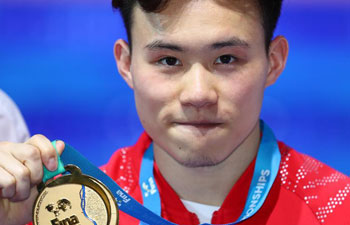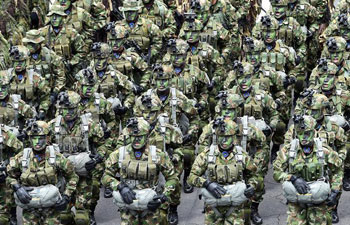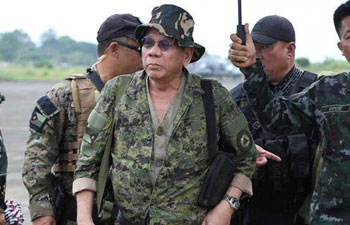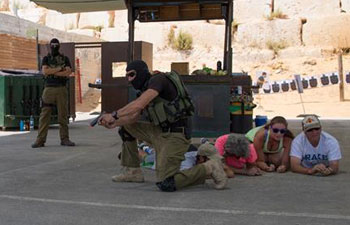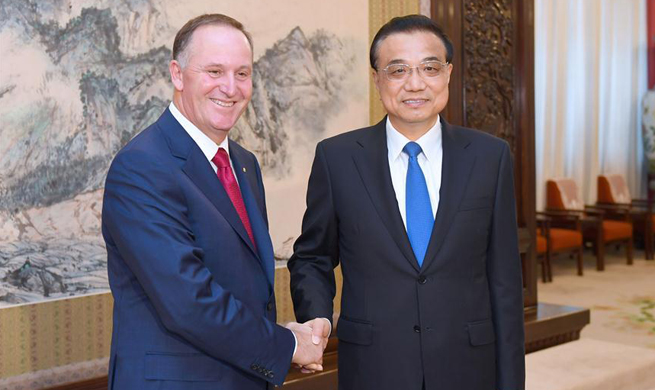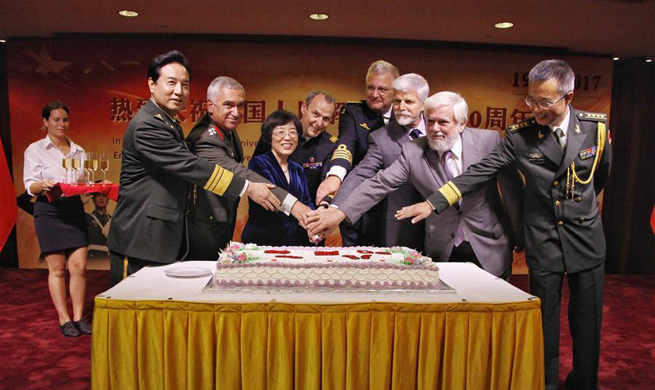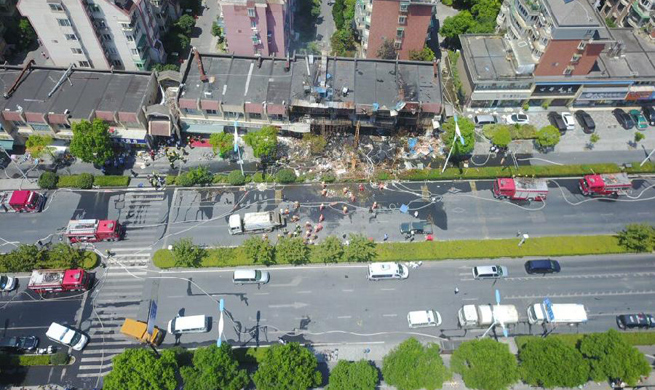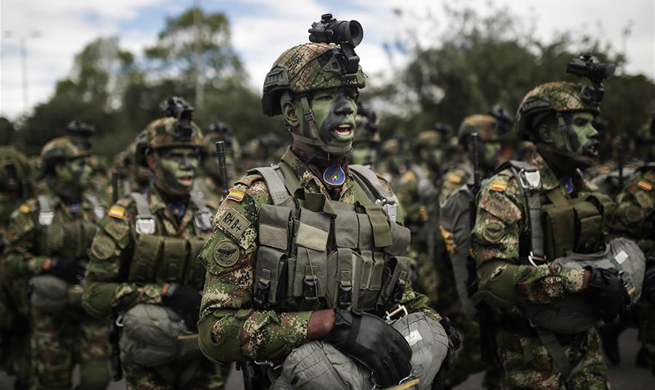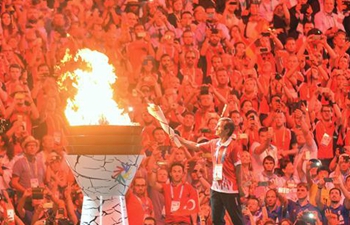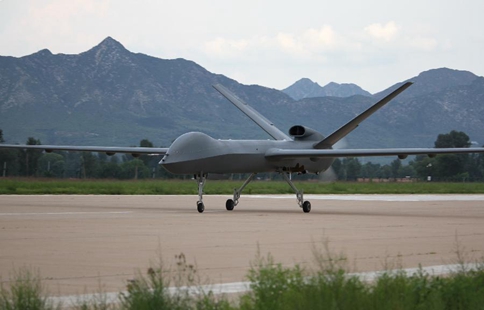BEIJING, July 21 (Xinhua) -- U.S. President Donald Trump has decided to end the CIA's training for rebels in Syria, media reported Wednesday, a move widely seen as a positive sign to promoting political solution to the prolonged civil war.
END OF CIA PROGRAM
Trump made the decision to scrap the program of the Central Intelligence Agency (CIA) nearly a month ago, after an Oval Office meeting with CIA Director Mike Pompeo and national security adviser H.R. McMaster ahead of a July 7 meeting in Germany with Russian President Vladimir Putin, unnamed U.S. officials were quoted by the Washington Post as saying on Wednesday.
The CIA program was launched in 2013 by the Obama administration to arm, fund and train moderate opposition fighters in the Free Syrian Army (FSA) to ouster the Assad regime. It is estimated that about 10,000 fighters have been trained in the past four years.
The program achieved little success after Moscow sent troops into Syria to support the Syrian army in 2015.
Before assuming office in January, Trump suggested that he could end support for the FSA forces, which was founded in 2011 by officers defected from the Syrian army, and give priority to fight against the Islamic State.
The White House and the CIA declined to comment on the Washington Post's report.
However, the United States still backed the Syrian Democratic Forces (SDF), a multi-ethic and multi-religious alliance of Kurdish, Arab and other minority militias in the civil war that has entered its seventh year, despite strong criticism from its NATO ally Turkey which considers the Kurds-dominated SDF as a threat to its national security.
The SDF has almost besieged Raqqa in northern Syria, the last stronghold of the Islamic State after the Iraqi army liberated Mosul early this month.
The U.S. officials told the Washington Post that Trump's decision had the backing of Jordan, where some of the rebels were trained, and appeared to be part of a larger strategy to focus on negotiating limited cease-fire deals with Russia after the IS is defeated.
While observers are concerned that the struggle for control of IS territories between the Syrian army and U.S.-backed rebels could lead to fierce conflicts, Trump's decision at least brings a glimmer of hope for a political settlement.
"I don't think there will be a fight between the Syrian government forces and rebels for control of IS-held areas because Washington and Moscow are heading toward an understanding of sharing influence," Maher Ihsan, a political expert in the Syrian capital of Damascus, told Xinhua.
POLITICAL SETTLEMENT
The White House adjusted its policy on Syria as France which spearheaded in the campaign to topple Syrian President Bashar al-Assad since 2011 has recently dropped its demand for Assad's departure.
France is opting for new "doctrine" to handle the Syria crisis, in which the departure of al-Assad is no longer a pre-condition to launch post-war talks, French President Emmanuel Macron said during a joint press conference with Trump in Paris last week.
"We have indeed changed the French doctrine towards Syria in order to have results and work very closely with our partners, in particular the United States of America," Macron said.
Maher Ihsan who attended the latest round of Geneva peace talks on Syria said, "I noted that France has highlighted its priorities, including fighting terrorism and stopping the use of chemical weapons in Syria, while removing Bashar al-Assad is out of the question. This makes the opposition confused."
Meanwhile, the Qatar crisis also undermines the rebel forces, experts said. Several Arab countries led by Saudi Arabia severed diplomatic ties with Qatar last month, accusing Doha of supporting terrorism, interfering in their internal affairs and seeking closer ties with Iran. Qatar denied all the accusations.
"The Gulf crisis weakens support for the rebels as the opposition forces are now divided into a Qatar team and a Saudi team," Ihsan said.
I think the situation in Syria is moving toward pacification if the international community kept exerting efforts, he added.
Commenting on the seventh round of peace talks which were wrapped up on July 15, U.N. special envoy for Syria Staffan de Mistura said "we have made incremental progress, no breakthrough, no breakdowns, no one walked out."
Xie Xiaoyan, China's special envoy for Syria, said at the talks that "at present, there are still big differences between and among the Syrian government and the opposition, so a step by step approach should be taken to handle the relatively easier problems first, so as to form more consensus and accumulate mutual trust."
It is also important to adhere to the principle of self-determination in the political process of the Syrian issue, that is, to let the Syrian people to decide their own future, he added.




